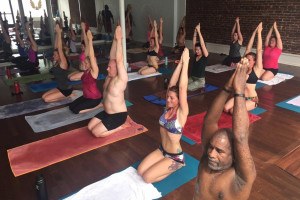The Checkup: Should Philly Parks and Rec Put a Treetop Zip-Line in the Wissahickon?
• Okay, so according to NewsWorks, the Philadelphia Department of Parks and Recreation reeeeeally doesn’t want me using the word “zip-line” to describe the proposed “treetop adventure” experience it would like to install in Wissahickon Valley Park. But, honestly, a zip-line is a zip-line is a zip-line, so I don’t think we should waste our time fighting over semantics. What people are fighting over, however, is whether said zip-line should be built in the park to begin with. In fact, area residents and park users are so up in arms about the idea—citing park overuse, environmental issues, etc.—that they’ve formed a group called the Alliance for the Preservation of the Wissahickon, which appears to live here and here on the web. According to the NewsWorks story, city official contend that the attraction “would not be a high-traffic, walk-up ‘zip-line’ course” and that they would limit the number of users so foot traffic wouldn’t get out of hand. The APOW folks, of course, aren’t convinced. You can read more about their reasons for opposing the project here, but tell me what you think, Be Wellers, especially if you’re a regular cyclist, runner or regular park user. Good idea? Bad idea? Share in the comments.
• Food Matters author Mark Bittman has a new opinion column over on the New York Times called “The Flexitarian.” He sums up his goal for the series thusly: “The moderate, conscious eater — the flexitarian — knows where the goal lies: a diet that’s higher in plants and lower in both animal products and hyperprocessed foods, the stuff that makes up something like three-quarters of what’s sold in supermarkets. That’s the kind of cooking and eating I’ll be exploring in this monthly column.” Read this first post here.
• The results of the Gallup poll’s annual Well-Being Index are in: it found that 40.6 percent of Americans are stressed out. Here in PA, we’re slightly better off than the national average, with 39.9 percent of residents reporting high stress levels. New Jersey residents are slightly worse: 40.9 residents there say they’re stressed. See the full results here.


